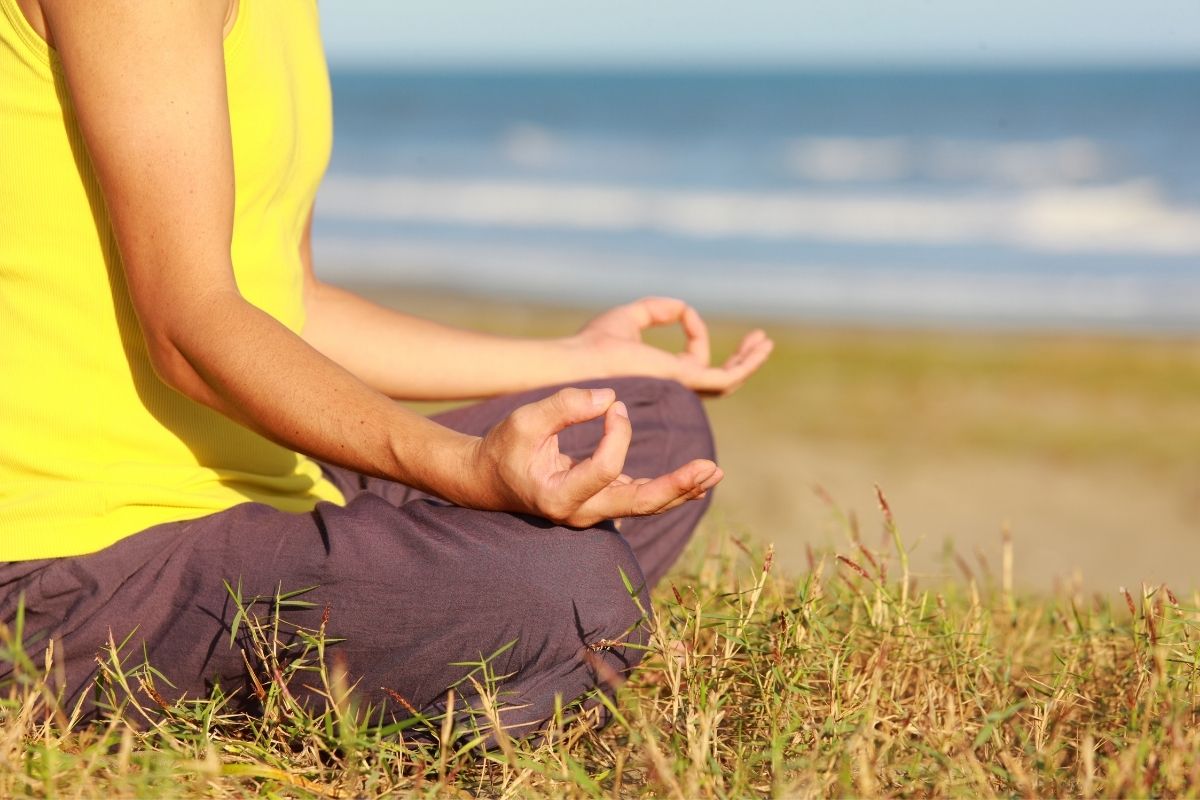
Getting into a meditative state can be infuriatingly difficult. There are distractions and obligations always waiting to jar you away from mindfulness. Flowing with these interruptions is part of life, but it’s still reasonable to take as many steps as possible to facilitate the experience.
Meditating is not like swimming, so you don’t really have to wait 30 minutes after eating to enjoy it. That said, eating can impact your meditation, so it’s helpful to go over what works best for you when considering how the two habits interact.
What happens when you meditate after eating?.

After food goes into your body, your internal organs get to work. Muscles move, blood pumps, and chemicals flow. Even if the stomach isn’t audibly making noise, it’s autonomously moving and pushing the food into the intestinal tract. Even though the calories from the food do help the process some, much of that energy is coming from calories burned earlier.
The amount of time it takes to finish depends on your body and your meal, but about an hour and a half is typical for the average person eating a normal meal. When you try to meditate too soon after eating, those bodily functions will make it a bit harder for your mind to focus. The effects aren’t so bad that they’ll stop you from meditating, though.
Large meals exacerbate the GI activity more and continue it for longer. Part of that is the basic increases in the volume of the material causing more reactions. The other half is filling up the physical space inside your body before the existing food is moved along.
Once the amount goes beyond your body’s metabolism rate, the truly awful symptoms begin to show. Stomach discomfort, queasiness, and excess gas are usually the first signs of overeating. The heart rate keeps increasing higher, and that can coincide with feelings of dizziness and lethargy despite the churning chemical engine.
The queasiness will progress into full-blown nausea, and it can eventually lead to vomiting. None of those are easy symptoms to get through while meditating. What you eat can also further impact how much your body responds.
Loading up on a bunch of simple carbohydrates will rapidly spike your body’s energy levels, especially if you have a condition like diabetes that increases sensitivity to those problems. A small coffee could be worse than a large meal for those who are sensitive to the jitters. Of course, there’s the obvious outcome that occurs eventually after eating.
Meditating when you have an insistent urge to go to the bathroom makes it difficult for even the most practiced guru to enter a restful state. Sometimes nature calls while you’re calling your inner self, but you don’t want to have a regularly scheduled bathroom trip in the middle of every meditation.
What happens when you meditate without eating?
Hunger’s onset is different for everybody, but most people start to feel the first sensations of hunger just a couple hours after eating. The first set of symptoms is generally mild. Thoughts will wander to snacks, energy levels will begin to drop, and the stomach will start rumbling as it cleans out the dregs of the last meal.
If you try to meditate at this point, it might be a little more difficult to get into a restful state and stay in it for a prolonged period of time. After that, people begin to feel more irritable. Headaches add to the pain and frustration, and the overall irritability can turn the nicest person into an unpleasant individual until they eat.
It can be tempting to meditate to calm down the feelings of ire, but having a small snack might be better than forcing the matter. Going too long without eating will cause a person to have blood pressure drops, visible body trembles, dizziness, and lethargy. It’s hard to maintain even a loose and limber posture when you’re swaying and dreaming about a slice of pizza.
The symptoms will progress to fainting and worse, at which point you are venturing into the territory of serious medical issues.
Is it better to eat before or after meditating?

If at all possible, you should aim to meditate neither too soon or too long after eating. As detailed above, both can have significant effects on your physical and mental state. Moderation is far more important than resetting the clock on your meditation break because you had a candy bar half an hour ago.
While keeping your body on a regular and healthy schedule, it’s fine to mix in meditation as you can throughout the day without regard for when you eat. Spending a few minutes in your zen after lunch is better than going back to work in a frantic state of mind. With those caveats out of the way, it’s better to aim toward just a bit of hunger than it is to meditate on a full stomach for most people.
Eating increases the amount of activity in your body, whereas the body starts to conserve energy once it feels the food supply is dwindling. Since it’s harder to sit still when your heart is beating faster and your gastrointestinal system is processing a meal. Include meditation into your current daily schedule, assigning it a time and a place, to get yourself moving towards a more convenient portion of your day.
It helps to keep a journal of your meditation process to see what’s working best for you. It doesn’t have to be too detailed; just jot down the amount of time and how you felt about the meditation. Over time, you’ll have a better idea of the factors that are influencing how purposeful your meditation is, and you can adjust based on your own insights instead of listening to strangers on the Internet.
What foods or drinks should you not have before meditating?

Meals that are filled with processed sugars are especially bad right before meditating. The energy burns out quickly, but it still pumps the heart rate more than any other type of food. Having those handy energy boosts around can be part of a healthy diet and a necessary tool for making it through the day, but try to avoid indulging if you have a scheduled block for meditation.
Coffee and caffeinated sodas should also be avoided. Caffeine is explicitly used to instill energy and activity, which is counterproductive to sitting still and meditating. Uncaffeinated versions can still be loaded with sugar, so don’t view “Caffeine Free” as a bypass against all potential problems.
The effects endure for quite some time, too, with ingested caffeine taking 10 to 12 hours to fully pass through you. Foods that are heavy and dense may take longer to process and cause more discomfort while metabolizing.
That includes greasy dishes like pizza or a juicy burger. This is more of a personal judgment call, so listen to your body when it tells you to add another food type to the “Not Before Meditating” list. That goes double for those who are already ignoring the signs telling them to avoid certain foods, like those with lactose problems who can’t say no to dairy.
